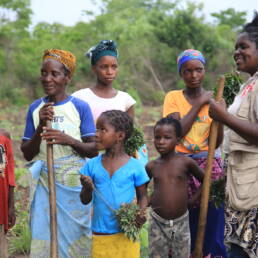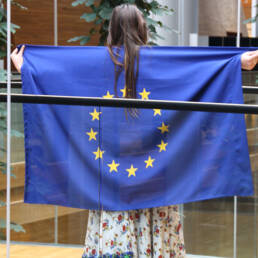The EU has pledged to mainstream the goals of poverty eradication and sustainable development in all its internal and external policies, following the adoption of Agenda 2030 and the Sustainable Development Goals, as well as of the revised European Consensus on Development in 2017.
Policy Coherence for Development (PCD) and Policy Coherence for Sustainable Development (PCSD) provide useful frameworks to address these challenges. However, their implementation remains overall unsatisfactory, including in the area of migration. These challenges are all the more worrying in light of the ongoing COVID-19 pandemic. Additional strains on local economies, health sectors, social protection systems and political structures are making a reflection on the development-added value of EU external migration policies even more pressing and timely.
For this reason, Caritas Europa and the Friedrich Ebert Stiftung foundation have produced a the policy brief “The impact of EU external migration policies on sustainable development: A review of the evidence from West, North and the Horn of Africa”. It includes elements from a fruitful virtual roundtable discussion organised jointly on 23 September. The discussion explored the impact of EU migration policy on sustainable development in Africa. Considering that EU policies should contribute to achieving rather than harming sustainable development worldwide, the roundtable stimulated a discussion on how to positively integrate migration considerations in Policy Coherence for Development (PCD) and other development policy frameworks and to ensure that EU external migration policies pursue sustainable development objectives.
We hope this policy brief will contribute to a greater understanding on the complexities of the interconnection between migration and development and will support policymakers with sound recommendations and follow up actions.
Background
Over the last few years, migration management has become a key component of European foreign policy and development cooperation with third countries. Among other objectives, EU external action – and particularly development aid – is now expected to help reduce migration from the Global South by addressing its ‘root causes’. The European Trust Fund for Africa (EUTF) – a financial instrument established in 2015 in the wake of the EU-Africa Valletta Summit – well embodies this approach.
Concretely, European external action on migration is now focused on four main dimensions:
- border management capacity building of third country authorities;
- strengthening of local asylum and protection systems;
- support to job-creation and livelihood programmes;
- facilitation of safe and regular migration channels and maximisation of migration-development synergies.
The development impact of these actions, however, is unclear at best. On the one hand, even programmes supposed to have a clear development value, such as livelihood programmes, appear to suffer from low effectiveness, accountability and local ownership. On the other hand, driven by the politicisation and securitisation of migration, European policymakers have devoted most of their resources to short-term migration control actions, disregarding the potential costs in terms of human rights violations (as shown by the examples of Libya or Sudan). Recent reports have also highlighted that European support to African countries on migration management has negatively affected regional African mobility, for example in the ECOWAS region – a key factor for local development.
More information
Maria Nyman
Secretary General
Stand in Policy and Advocacy Director
Tel: +32 (0)2 235 03 92
Mob: +32 (0)495 17 47 48
mnyman@caritas.eu




